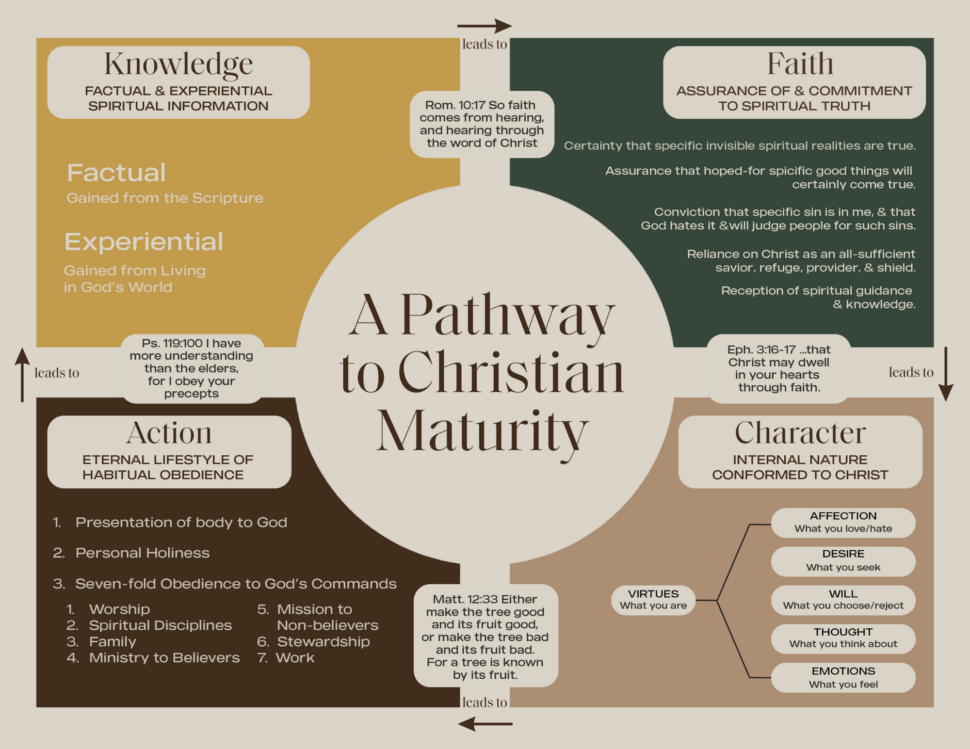
How can I get God’s word to stick?
Psalm 119:148, John 15:7
George Mueller gave a poignant testimony to the value of deep meditation on Scripture, and how it flowed into prayer for him. His goal in his daily time in the word and in prayer was to strengthen his inner man, and to get into a happy state in which he could serve the Lord with gladness:
I saw more clearly than ever that the first great and primary business to which I ought to attend every day was, to have my soul happy in the Lord. The first thing to be concerned about was not, how much I might serve the Lord, how I might glorify the Lord; but how I might get my soul into a happy state, and how my inner man might be nourished.
The most important thing I had to do was to give myself to the reading of the Word of God and to meditation on it, that thus my heart might be comforted, encouraged, warned, reproved, instructed; and that thus, whilst meditating, my heart might be brought into experimental, communion with the Lord. I began therefore, to meditate on the New Testament, from the beginning, early in the morning.
As the outward man is not fit for work for any length of time except we take food, and as this is one of the first things we do in the morning, so it should be with the inner man. Now what is the food for the inner man? Not prayer, but the word of God; and here again, not the simple reading of the word of God, so that it only passes through our minds, just as water runs through a pipe, but considering what we read, pondering over it, and applying it to our hearts. (George Mueller, A Narrative of Some of the Lord’s Dealing with George Muller, Written by Himself, Jehovah Magnified. Addresses by George Muller Complete and Unabridged, vol. 1 [Muskegon, MI: Dust and Ashes, 2003], 271–272.)
by means of meditation, we give the word a chance to settle in our minds and do its work.
Meditation on Scripture is essential to gaining a deep understanding of the truth of its words. Without meditation, the words of our daily reading can flow through our minds like water in a pipe and make no impact. But by means of meditation, we give the word a chance to settle in our minds and do its work.
Psalm 119 is a potent manual on scriptural meditation, producing ever-increasing insight and understanding. My favorite prayer for insight when coming to the Bible every day for my quiet time is Psalm 119:18: “Open my eyes that I may see wonderful things in your law.” The “seeing of wonderful things” in God’s law is a mental “sight” which can be called “illumination,” and it is the special work of the indwelling Holy Spirit.
But these moments of illumination don’t come without labor on our part. So, meditation on God’s word is essential to attaining the deeper knowledge, insight, and understanding we crave. Psalm 119 contains almost half of all the references to meditation in the Bible and is therefore the primary handbook for learning how to meditate on Scripture to gain insight. I found a fascinating couplet of verses in that magnificent psalm. Let me put them side by side so you can see the full impact:
Psalm 119:99: “I have more insight than all my teachers, for I meditate on your statutes.”
Psalm 119:27: “Let me understand the teaching of your precepts; then I will meditate on your wonders.”
Verse 99 teaches something we would expect: “I meditate; therefore, I have insight.” Verse 27 reverses the order and therefore surprises us: “I understand; therefore, I meditate.” Verse 27, because it was surprising to me, was worth some meditation in its own right. “Why does the psalmist ask God for understanding in order that he might meditate?” Then it hit me: meditation on Scripture is hard work (see Psalm 119:148, “My eyes stay open through the watches of the night, that I may meditate on your promises”), and we probably won’t keep doing it if we get nothing from it!
An illustration may help us understand. Suppose you had an eccentric old uncle in Arizona who died and, in his will, left you an abandoned silver mine. Let’s say you flew out there to investigate your new property. You went to the nearby town and told the townsfolk about the will, and they laughed. They said, “That old mine has been abandoned for years . . . no one has been up there even to look around . . . and as far as we know, no silver ever came out of that hole in the ground.” Let’s say you rent a pick-up truck, drive to the base of the mountain, climb up to the entrance and past the old plywood and 2x4s blocking the entrance . . . you poke around for two hours with a flashlight. Now, let’s say you find nothing but spiders and dust. Will you be motivated to ever go back in that hole again? No, you will try to sell the mountain and get something for your trouble.
But let’s say after ninety minutes, you suddenly notice a small tunnel leading off the main tunnel, and it seems different than the others. So, you crawl in about a hundred feet, and suddenly your flashlight shines on some shiny substance on the wall; your heart beats faster, you take your trowel and, with building excitement, dig some of the shiny rocks into your bucket. You take the rocks to the assay office in town, and with a look of amazement, the assayer says, “This is silver, my friend.”
Now let me ask the same question again: will you be motivated to ever go back in that hole again? Once you start discovering new things through meditation, you will go down into the tunnel again and again for more silver. By the hard work of careful Bible meditation, you will mine out the building blocks of a new civilization within your heart—a City of Truth built over the years.
Memorization is one of the simplest ways to ensure long term meditation. By memorization, we hide God’s Word in our hearts so we will not sin against Him (Psalm 119:11). I think it is only by memorization that we can practically meet Christ’s condition in John 15:7: “If you remain in me and my words remain in you, ask whatever you wish, and it will be given you.” How can Jesus’ words remain constantly in us if we don’t memorize them?
(excerpt from An Infinite Journey, pgs. 349-350, by Andy Davis)





